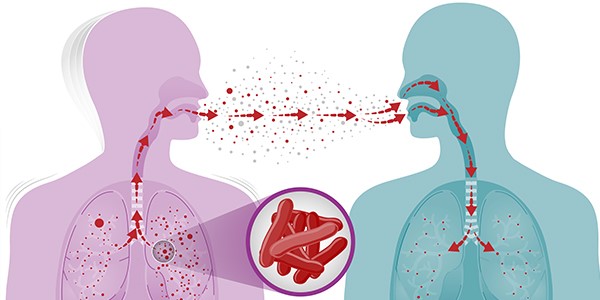Invest in TB and SUDs Services and Saves Lives
By Caroline Kahiu
Each year, we recognize World Tuberculosis (TB) Day on March 24. This is a day set aside to educate the public about the impact of TB and raise awareness on the challenges that hinder progress towards elimination of this devastating disease. TB is the leading cause of death from a single agent worldwide. For the first time in over a decade, TB deaths increased in 2020.
One potential explanation is the continued transmission of TB among high risk populations such as people with substance use disorders. This is because alcohol and drugs can damage a person’s body and weaken their defenses against illnesses such as TB. Those with SUDs may also find it difficult or be reluctant to access healthcare or take their medication regularly. This means that they pose an increased risk of passing infectious TB on to others and/or drug resistant TB.
People with alcohol abuse problems are less likely to adhere to a treatment plan, have regular healthy meals and may spend time in places where it is easier for TB to spread, such as crowded or poorly ventilated homes or social venues. TB medication can also lead to side effects such as liver toxicity, which is particularly dangerous for people drinking alcohol.
On the other hand, passive and active exposure to cigarette smoke are both associated with an increased risk of infection and development of active tuberculosis. Cigarettes and tobacco products play in the pathogenesis of TB resulting to a reduced immune system and increasing susceptibility to infection. Tobacco use has also been associated with abandonment of tuberculosis treatment that might be related to the psychosocial aspects of smoking and the lower socioeconomic status of the affected population.
Epidemiological data suggests that there is a relationship between tuberculosis and illicit drug use and is increasing leading to a public health problem. The presence of illicit drug use amongst those infected with TB in families and communities is a crucial factor in maintaining the chain of tuberculosis transmission. This is promoted by a number of factors: the risky lifestyles, the accumulation and isolation of people indoors for the consumption of illicit drugs, the sharing of syringes and other drug paraphernalia, and the spread of communicable diseases such as HIV and Hepatitis C.
Unfortunately, stigma and fear around substance use disorders (SUDs) and TB continues to hamper the public health response. TB stigma just like SUDs has more significant impact on women and less-educated community members, given that these groups are often at higher risk for health disparities. TB and SUDs stigma may, therefore, worsen pre-existing gender-and class-based health disparities.
It is clear that substance use disorders have a negative impact on tuberculosis risk and treatment outcomes. Therefore, in populations at high risk for SUDs, it is important to evaluate this condition, integrate prevention and management of SUDs in the TB care protocols, as well as to monitor treatment adherence in order to avoid default and to follow patients closely to identify adverse events.
This year’s World TB day theme is “Invest in TB. Save Lives” conveys the urgent need to invest in resources to ramp up the fight against TB and achieve the commitments to end TB made across the world. Government, media and communities have an important role in preventing and stopping TB and SUDs. Ensuring healthy lives and promoting well-being for individuals of all ages and calling for prevention and treatment of SUDs and illnesses will go a long way in eliminating TB. Also, nicotine withdrawal has been strongly associated with successful completion of treatment for latent tuberculosis.
We all need to be intentional and thoughtful when communicating and show support around those with TB and SUDs. What will work is building trust in reliable health services, showing empathy for those affected, understanding the diseases and adopting affective practical measures so that people can help keep themselves and their loved ones safe. Everyone has a role to play in ending TB and SUDs- individuals, communities, businesses, governments and societies.
Published on Daily Nation and People Daily on 25/03/2022.

